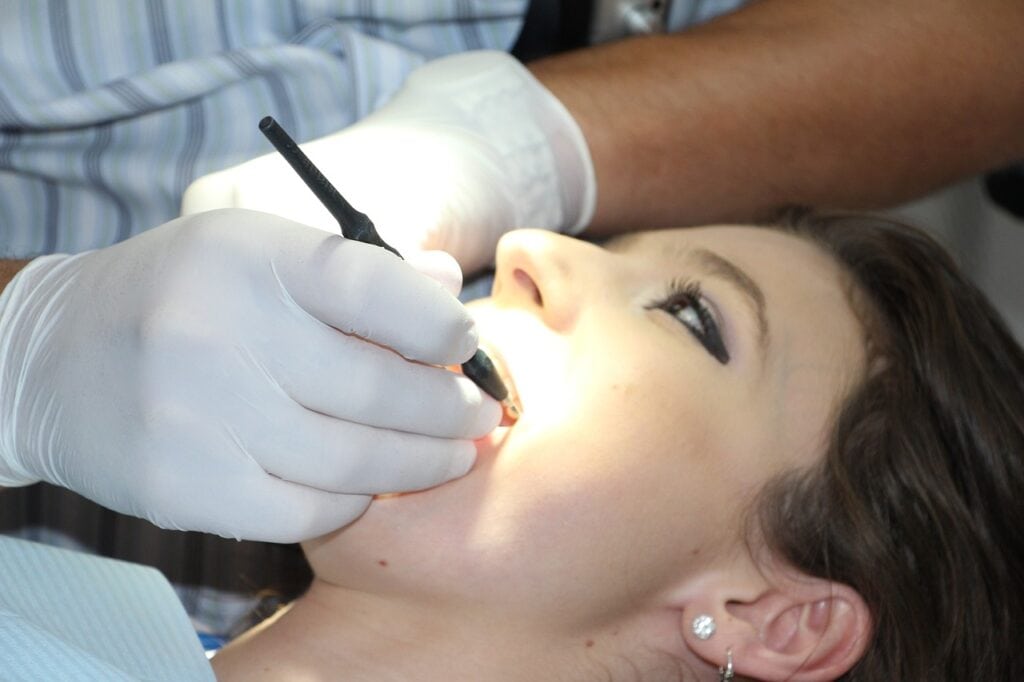How Can I Avoid Dental Costs?
Maintaining your teeth in top shape can feel like a luxury affair when faced with substantial dental costs. The situation is even more challenging when dental benefits are out of reach or retirement strips them away. Yet, avoiding oral care isn’t a route we can take, given the vital link between dental health and our overall well-being, including conditions such as diabetes and heart disease.
The good news? It’s possible to save your smile without breaking the bank. With clever strategies, and help from trusted Perth dentists, you can reduce or even avoid dental costs without compromising the health of your teeth and gums.

Maintaining Oral Health
Strong oral health is your frontline defence against dental expenses. Regular brushing, flossing, and rinsing do more than just keep your teeth clean. It is a protective barrier against tooth decay and gum disease, two significant contributors to escalating dental care expenses. Integrating fluoride treatment into your routine can further strengthen your teeth and keep decay at bay.
What’s more, the role of diet in oral health cannot be overstated. Consuming a balanced diet, low in sugars, helps prevent tooth decay and saves you from spending on complex treatments like root canals.
A little attention to oral hygiene now can save you from more expensive alternatives down the line. Not to mention, it boosts your general health too.
Regular dental checkups with your South Perth dentist and maintaining good oral hygiene at home help minimise future dental treatment costs.

Guarding Your Pearly Whites Against Expensive Harm
Taking precautions to avoid damage to your teeth is another effective way to control dental costs. Wearing a mouthguard during sports can save your teeth from injuries that could otherwise lead to major dental work, raising your dentist’s cost.
Another common cause of damage to teeth is grinding or clenching, often stress-induced or occurring during sleep. A dentist can help identify these signs early and provide treatment options, such as a night guard, to prevent further wear and tear on your teeth, reducing your long-term dental treatment cost.
Furthermore, avoiding hard or sticky foods that can crack teeth or lead to tooth decay is another preventive measure. That may mean skipping that extra piece of hard candy or refraining from chewing on ice, but the reduction in potential dental costs will be worth it.
Speak to your dentist about potential risks and the precautions you can take to keep your teeth healthy and your wallet happy.

Common Dental Issues That Can Become Costly If Not Addressed Early
Taking care of your teeth is more than just brushing and flossing. Ignoring small issues now can lead to big, expensive problems later. Here are a few common dental issues you should address as soon as possible to save money and keep your smile bright:
Cavities: Small holes in your teeth can grow bigger and deeper if you don’t treat them early. If cavities get too large, you might need a costly crown or even a root canal.
Gum Disease: Also known as gingivitis in its early stages, this is when your gums get red and swollen and might bleed when you brush. If you don’t take care of your gums, the condition can worsen to periodontitis, which can lead to tooth loss and expensive treatments.
Cracked Teeth: Small cracks can happen from things like biting hard food or grinding your teeth at night. These cracks can grow and cause pain or lead to broken teeth, which might need complex treatment.
Plaque Build-Up: Plaque is a sticky film of bacteria that forms on your teeth. If not cleaned off regularly, it can harden into tartar, which is tough to remove and can cause cavities and gum disease.
Addressing these issues early on with regular check-ups can save you from discomfort and high dental bills in the future.
How Improving Your Overall Health Can Reduce Your Dental Costs
Your mouth is a gateway to your body, and your overall health can directly impact your dental health. By taking good care of your general health, you can also keep your dental costs down. Here’s how:
Manage Diabetes: High blood sugar levels can lead to gum disease and slow healing in the mouth. Keeping your diabetes under control can help prevent these dental issues.
Control Acid Reflux: Acid reflux isn’t just uncomfortable—it can also harm your teeth. The acid can wear away tooth enamel, making you more prone to cavities. Managing this condition can protect your teeth and reduce your dental bills.
Eat Well: Eating a diet rich in fruits, vegetables, and low in sugary snacks helps keep your whole body, including your teeth and gums, healthy. A good diet helps prevent dental problems before they start.
The Crucial Role of Regular Dental Check-Ups
Adherence to the guidelines set forth by the Australian Dental Association is vital to ensure the best dental health possible. Among the most important of these guidelines is undertaking regular dental visits. A regular check-up, performed by a skilled dentist, enables the early detection and treatment of potential oral issues, significantly reducing dental costs.
A good dentist doesn’t just clean your teeth during a regular check-up but also conducts a thorough examination, a crucial aspect of your overall healthcare regime. Your dentist can identify early indicators of dental decay, gum disease, and even oral cancer, ensuring timely intervention.
Regular check-ups also allow your dentist to share valuable advice about oral hygiene, diet, and other factors affecting your dental health. It’s an investment in maintaining a healthy mouth and minimising dental expenses. Hence, scheduling regular check-ups with a dentist is a decision that pays off in the long run.
Remember, in dentistry, prevention is less painful and costly than treatment. So, keep your smile bright and healthy with regular visits.

Transparent Conversations about Dental Costs and Payment Schemes
Visiting a dentist can sometimes bring about anxiety, not just from the impending dental work but also from the cost. Uncertainty about what your bill might be is common. However, open communication with your dentist about the cost of dental services and treatment options before any procedure can alleviate this stress.
Most dental practices are open to conversations about the cost and payment options. Your dentist should be more than willing to help you understand your dental treatment costs. You can also find the best course of action that suits your budget by asking about payment options.
Feel free to ask for a cost breakdown or request information about available payment plans. Many dentists offer these plans, making dental care costs more manageable. Also, it’s worth noting that some practices offer discounts for upfront payments or are preferred providers for certain health funds, offering higher rebates to members.
Furthermore, getting a second opinion is often wise, particularly for major dental work. It ensures the proposed treatment is necessary and may help you find less expensive alternatives.
Generally, having transparent conversations about dental costs helps avoid surprises and allows you to feel more comfortable and in control of your dental health.

Examining Alternatives: Comparing Dental Services and Utilizing Dental School Clinics
The cost of basic dental services can fluctuate significantly from one dentist to another, even within the same locality. This variability presents an opportunity for patients to shop around and save money. Acquiring estimates from several dentists in your area can allow you to compare prices, leading to potential savings.
Exploring dental school clinics can present an excellent alternative for those under financial strain. Dental school clinics offer a unique blend of benefits, as these clinics provide necessary dental treatments under the supervision of faculty members. The treatments conducted by dental students come at a lower cost compared to those provided by practising dentists.
These clinics are not just a cost-effective option but also contribute to the training and education of future dentists. While they may not offer the speed of service at a typical dentist’s office, they still ensure that the patient’s oral health needs are met. Thus, for those willing to trade a bit of time for reduced costs, dental school clinics provide a way to maintain dental health and save money.
Investing in Dental Insurance
Getting dental insurance can help control your dental bills. These plans often cover many dental services and treatments, helping lower the costs. More than half of Australians have extras cover for services like dental check-ups but it’s important to know about the different types of coverage before you start looking.
Do Private Health Insurance Plans Cover Dental Care?
Private health insurance can significantly assist with dental care costs, extending the coverage beyond what Medicare offers. However, the extent of coverage and the out-of-pocket costs will depend heavily on the specific policy and the health fund providing it.
Typically, private health insurance policies are structured to cover various categories of dental care:
Preventative Dental – These usually cover treatments like consultations, scale and clean sessions, and mouthguards.
General Restorative Dental – Coverage extends to treatments like simple fillings, extractions, and even wisdom teeth removal.
Major Dental and Implants – This category typically covers complex treatments necessary for repairing or replacing teeth, such as dental crown and bridges, veneers, dental implants, and dentures.
Orthodontics – This category typically includes treatments like braces and retainers that aid in correcting the alignment of teeth and jaw.
While private health insurance can help with dental expenses, it’s crucial to note that most health funds usually cover about half the cost of dental services, with the patient responsible for the rest. Moreover, there may be limits on how much you can claim each year.
Preferred Provider Dental Practices
Some health funds operate with preferred providers, i.e., a network of recommended dentists. Choosing to see these dentists can lead to lower fees, higher rebates, and more preventive services. Given the variations in policies across different health funds, it’s essential to understand the specifics of your coverage, including what services are covered and to what extent, before you receive dental care. At Acts Dental Care, we are preferred provider for all major health funds including Bupa platinum dental provider, Medibank members choice provider, HBF preferred provider, HCF preferred provider and NIB preferred provider to ensure our patients get quality dental care at an affordable cost.
Do You Qualify for Public Dental Benefits?
Public dental services in Australia can be a lifeline for those eligible. However, access to these services can be challenging, with waiting lists potentially stretching over a year. It’s important to note that these services are only available to those who meet specific criteria.
Public Dental Services
Eligibility and offerings of public dental services differ across states, typically focusing on senior citizens and individuals already receiving other government benefits.
Child Dental Benefits Schedule
If you’re a recipient of other Medicare payments, the Child Dental Benefits Schedule (CDBS) might be a resource for your children. Eligible children between 2 and 17 can receive up to $1000 over two calendar years for basic dental services through CDBS.
Covering a range of services such as check-ups, X-rays, cleaning, fillings, and extractions, CDBS can be a significant aid in managing your children’s dental health. However, it’s worth noting that it doesn’t cover orthodontics, cosmetic dental work, or any dental services provided in a hospital.
The Appeal and Risks of Overseas Dental Treatment
Exploring overseas dental treatment can be appealing due to potential cost savings. However, it’s crucial to consider whether the benefits outweigh the risks. Factors such as the quality of dental care, the qualifications of the dentist, and the potential impact on the patient’s overall health must be considered. A well-informed decision can protect you from unnecessary complications and ensure you receive the best care for your teeth.
Conclusion
In conclusion, managing dental costs may seem daunting, but there are numerous ways to make oral care affordable. Prioritising preventative oral hygiene, utilising dental school clinics, exploring dental insurance, and maintaining an open dialogue about costs with your dentist are all effective strategies. Regular dental check-ups and maintaining good oral health can minimise potentially costly treatments. For those who qualify, public dental benefits can be a significant relief.
Even with private insurance, understanding your policy and exploring all options can ensure you get the best care at the most reasonable cost.
Remember, investing in your dental health today can prevent more expensive, complex treatments down the line. Achieving excellent oral health without breaking the bank is entirely possible.
Frequently Asked Questions
What are the most effective ways to reduce my dental care expenses?
Engage in regular preventive care, such as brushing, flossing, and using fluoride treatments.
Maintain a healthy diet low in sugars and high in fruits, vegetables, and water to prevent tooth decay.
Schedule regular dental check-ups to catch problems early before they require more expensive treatment.
2. How often should I visit the dentist to minimize dental costs?
It’s recommended to visit the dentist at least twice a year for check-ups and cleanings. These visits can help prevent dental problems or catch them early when they are easier and cheaper to treat.
3. Can dental insurance help reduce my out-of-pocket dental expenses?
Dental insurance typically covers a portion of the cost for many preventive and restorative treatments. Understanding your policy details can help you maximize these benefits and reduce your overall expenses.
4. Are there any affordable alternatives to traditional dental care?
Consider using dental school clinics for more affordable services, where treatments are provided by supervised students. Shopping around for dental services and comparing prices can also help you find more budget-friendly options.
5. What should I do if I can’t afford dental insurance?
Look into public dental benefits for which you may qualify, or explore payment plans offered by many dental offices. Community health centers and clinics often provide dental services at a reduced cost based on your income.
6. How does diet affect my dental health and costs?
A diet high in sugars and acids can lead to tooth decay and other dental problems that may require costly treatments. Eating a balanced diet and avoiding sugary snacks and beverages can help keep your teeth healthy and reduce expenses.
7. What are the risks of delaying dental treatment to save money?
Delaying treatment can lead to more serious health issues that are more complex and costly to resolve. Addressing dental issues early is usually more cost-effective and can prevent the need for extensive treatments.
8. How can I get the most out of my dental visits to avoid future costs?
Be proactive in your visits by asking your dentist for a comprehensive assessment and specific advice on improving your dental care routine. Also, discuss any minor issues before they become major problems.
9. What should I consider when choosing a dentist to reduce costs?
Consider a dentist who is a preferred provider for your health insurance to enjoy higher rebates and lower out-of-pocket costs. Additionally, a dentist who focuses on preventive care can help you save money in the long run.
10. Can preventive dental tools like mouthguards save money?
Using protective tools like mouthguards during sports can prevent dental injuries, which can be expensive to treat. Discuss with your dentist about getting a custom-fit mouthguard.
Ready to Keep Your Smile Bright and Healthy?
Don’t wait for small issues to become big problems. At Acts Dental, we’re here to help you maintain your oral health and prevent future complications. We offer various dental services including professional dental cleaning, dental implants, teeth whitening, and wisdom teeth removal in Perth.
Book your next appointment today and take the first step towards a healthier smile. Give us a call at (08) 9474 5083 to easily schedule your visit. Let us help you keep your smile looking great without breaking the bank!



